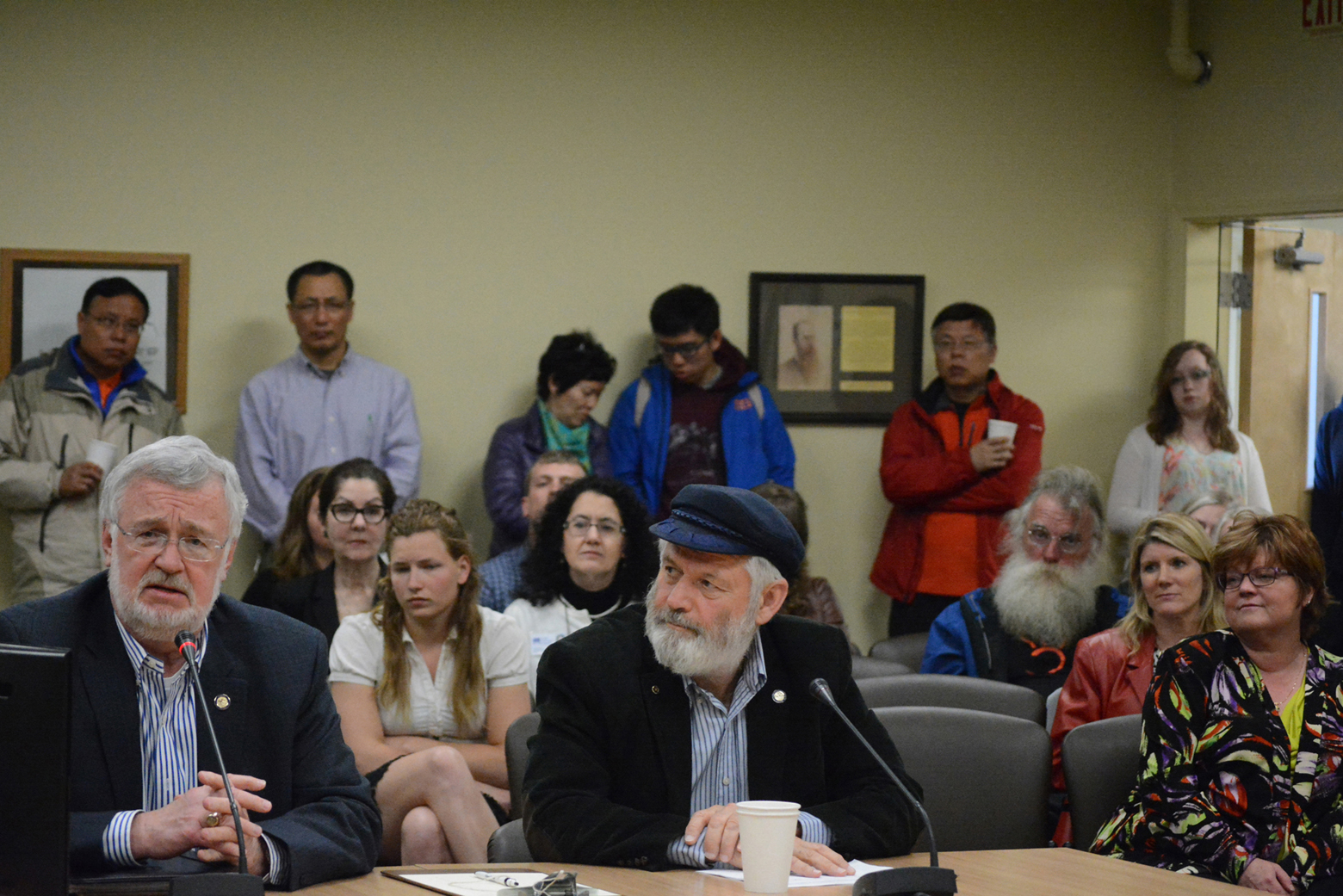It took until last Thursday, but after endless days where most legislators waited for majority and minority leaders to reach a compromise, the Alaska Legislature finished its one big job: passing a budget.
On Monday in separate phone interviews, Homer’s legislators, Sen. Gary Stevens, R-Kodiak, and Rep. Paul Seaton, R-Homer, reflected on the tortured path to borrowing about $3 billion from the Constitutional Budget Reserve and funding the state’s fiscal year 2015-2016 budget.
“I would call it really, really painful,” Stevens said from Kodiak.
To pass a budget by dipping into the CBR requires a three-quarters vote in both houses. To get that vote meant the cooperation of the Democratic Party minority.
“We always find a compromise,” Stevens said. “It just took a long time getting there.”
Seaton said in the end the dollar-for-dollar the budget passed by the Senate was the same as the House had passed before the end of the regular session. He said the main difference was intent language put in the bill that said next year if oil prices stayed low the Legislature might not fund pay raises negotiated in state worker contracts.
“That’s what took us another two weeks and got us into pink slips,” Seaton said, referring to layout notices the governor had to send out as the fiscal year deadline loomed of June 30. “It was a little frustrating after a lot of work and negotiations for the Senate to say we can renegotiate better with the House.”
Stevens said the bipartisan cooperation he practiced when he was Senate President might have helped reach a solution sooner.
“It really does work. You have to bring people into the tent. I think a mistake was made leaving the minority out until the very, very end when you needed the three-quarters vote,” he said.
Looking ahead, if this year was tough, next year will be even tougher. The CBR only has about two more years of spending until the balance of about $6 to 7 billion runs out.
“We have this huge deficit we’re facing,” Stevens said. “Without any revenue coming in, we’ve just got to face the music and live within our means.”
That means not just cutting the budget further, but raising money through other methods, like an income tax, a state sales tax, a state property tax, and changing oil and gas production tax credits. Stevens likes to point out that even eliminating every state job the deficit would still only be cut in half.
“The harder thing for us in the coming year and the year after that is to reduce the budget somewhat and find ways to find revenues and maybe find ways to reduce credits to oil companies,” he said.
Oil company credits could represent a $490 million line-item expenditure. For the 2015-2016 budget just passed, credits went up $95 million. Some of that is a credit against other taxes owed, but if the credit goes to a company that has not yet produced, that’s a cash payment. In areas like Cook Inlet, there isn’t a production tax, Seaton noted.
“That’s why people have been saying the gas that goes into Cook Inlet has been subsidized,” he said.
Seaton participated in Gov. Bill Walker’s conference in Fairbanks, “Building a Sustainable Future: Conversations with Alaskans.” At the workshop, small groups played with a model where they could adjust factors like budget cuts and revenue enhancements.
“You have to turn on a whole lot of things. You have to reduce gas credits. You have to have some kind of cap on the Permanent Fund Dividend or maybe some usage of the Permanent Fund earnings,” he said. “All seven groups, only a couple of them met the goal of the CBR exceeding 2017 and not have the Permanent Fund decline in value.”
Working toward a solution in the next session will be complicated by the fact that 2016 is an election year, both legislators said.
“There are probably going to be a lot of legislators who won’t vote on an income tax and run for election,” Stevens said.
Seaton has already touched the third-rail of income taxes. In the latest session, he introduced a bill that would impose an income tax on individuals, limited liability corporations and other entities currently not paying corporate income taxes. That bill didn’t go anywhere.
“I’m not seeing a whole lot of enthusiasm for doing revenue enhancements,” Seaton said.
Despite all the drama of passing a budget, Stevens said it served to educate the public about the fiscal challenges ahead.
“One of the good things is the public understands how this is a serious problem,” he said. “You just can’t cut your way to fiscal stability.”
That was an awareness Seaton saw happening at the governor’s conference.
“Everybody was looking at numbers and different ways to solve the problems — solutions. That’s what we haven’t been talking in the Legislature yet, solutions.”
Michael Armstrong can be reached at michael.armstrong@homernews.com.


